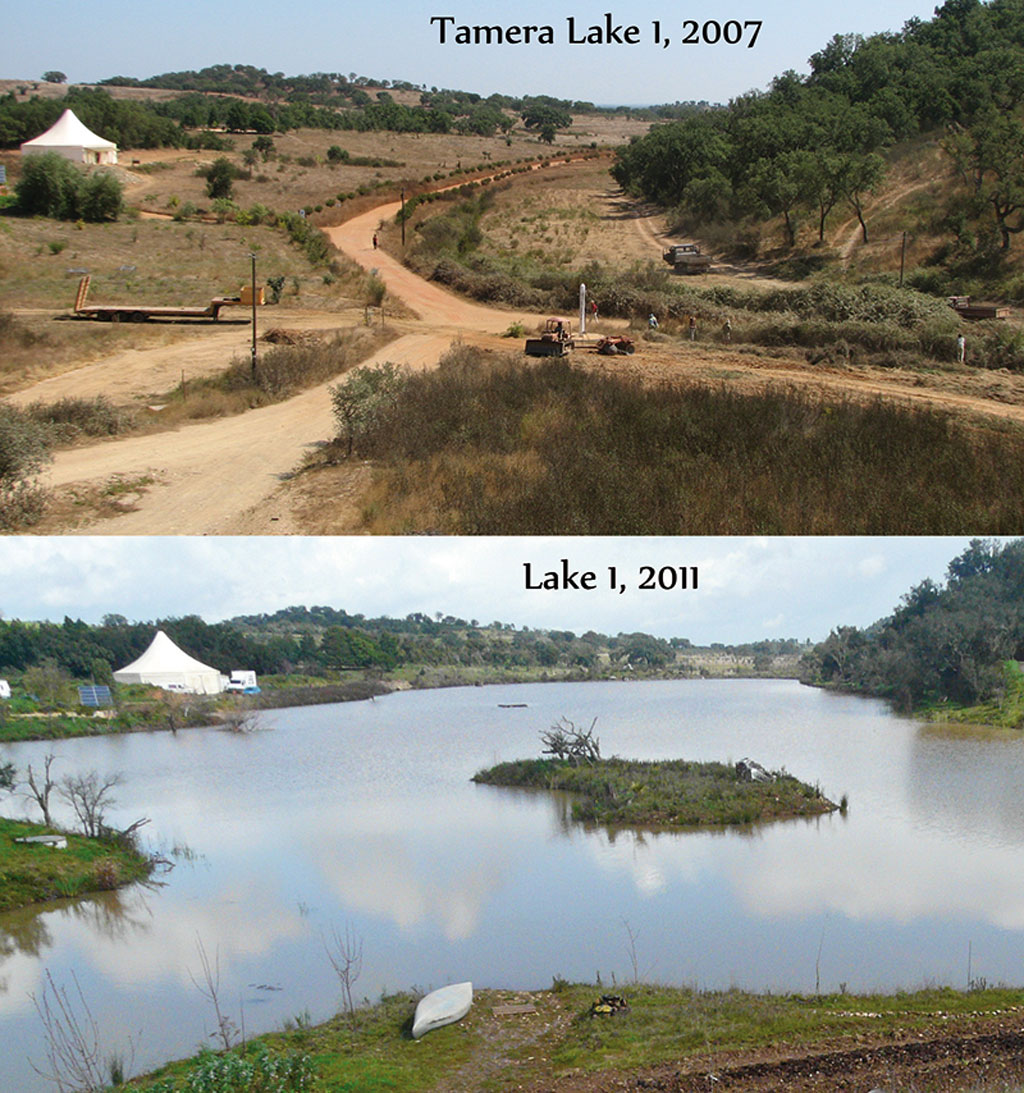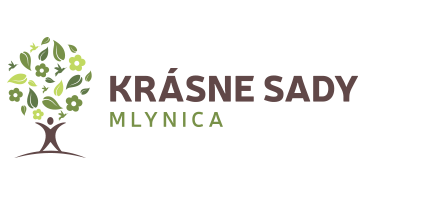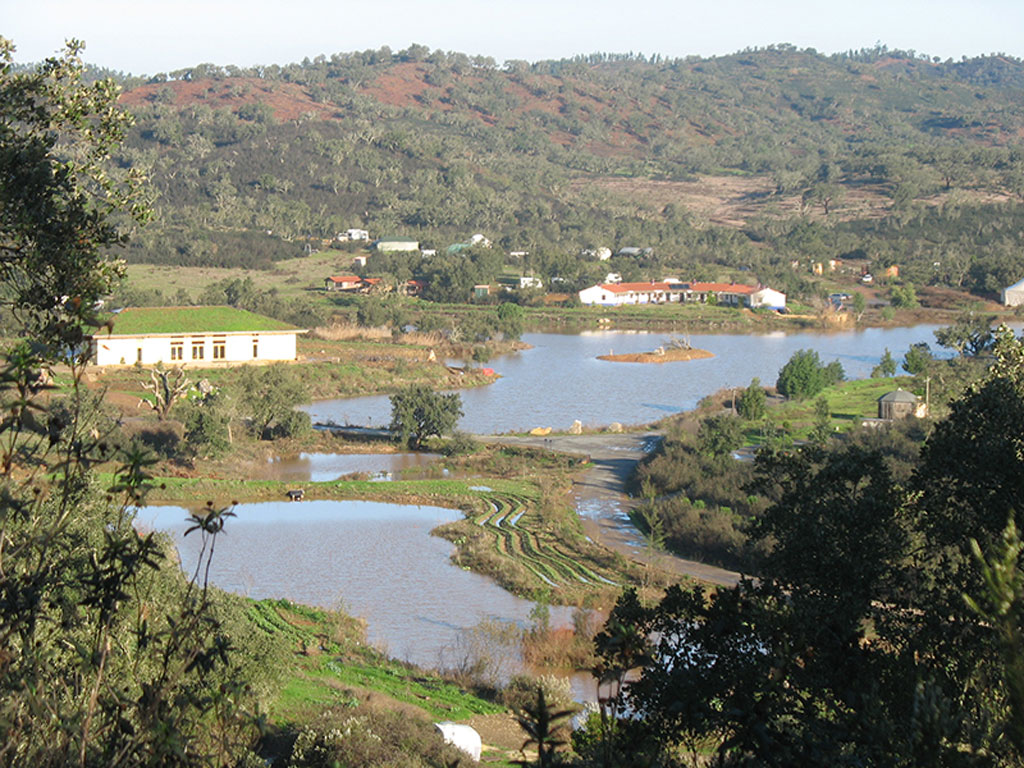Tamera – zaujímavý ekoprojekt v Portugalsku
An interesting eco-project Tamera exists in the south of Portugal. People of Tamera have managed to turn the dry and little fertile soil into a green place.
Tamera was founded in 1995 by Dieter Duhm and Sabine Lichtenfels. Initially it was a community founded in Germany in 1978. “Its founders wanted to create a space for living, where people and all living creatures trust each other. After taking part in protest against the war in Vietnam and a peace march, its founder came to a conclusion that the war is an external expression of people’s internal pain. Building the sustainable peace culture requires not only ecologically and technologically healthy structures, yet also internal healing process. The development of community was the answer for violence,” Vera Kleinhammes, a daughter of founders, explains the motifs of Tamera establishment.
There are around 170 people living in Tamera on an area as big as 330 acres. They produce ecological food, its inhabitants pay a great attention to other aspects of life, such as spreading the peace ideas, culture, and education. A number of interesting workshops, international conferences and seminars are held here.
Michal Kravčík from a non-governmental organisation Ľudia a voda (People and Water) has visited Tamera more than once. “The Tamera existed as long as 20 years and all that time they were looking for solutions to make the dry country productive. Then Sepp Holzer came (an Austrian farmer who applies alternative solutions – an editor’s note) and told them to start from water. But how? We do not have the water, they answered. You just need to retain it and you will have it, Sepp Holzer replied. They started to implement Holzer’s advice in autumn and the following spring there was a plenty of water,” describes Michal Kravčík who has been studying relations between the country and water for years, not only in Slovakia. “The first thing they did was a big, about three-hectare large lagoon. To make this idea effective, they started from the bottom, from the lowest point, and continued inland. I visited Tamera last year with an Indian Rajend Singh (a holder of Stockholm Water Prize, known as a Nobel Prize for Water for 2015 – an editor’s note) who renewed seven dry rivers in India. One can see the border between Tamera and the rest of the land. Tamera was green but the rest of the land was dry,“ says Michal Kravčík. You can see great changes in the country, however, there is still a lot to do to achieve the final principle – to ensure that every rain drop permeates the place it drops on.

Retention of water closely relates to growing one’s own food and food independence. According to Vera Kleinhammes, the retention of water and permaculture that they implement make the production of food in dry regions sustainable. “In Tamera they want to reach 70% food independence rate and it seems they are doing well. At the beginnings, they managed to breed one cow, while now they produce a significant part of food themselves,” continues Michal Kravčík.
Tamera represents a revitalizing element in the south of Portugal. The urban exodus and drought took a heavy toll and their experience might contribute to revitalization of villages, or a whole region. “Another challenge is our external development. A few years ago we were banned from continuing on construction works on our land. According to rules concerning the conservation of nature, our land has already used up its construction opportunities. It means that many people must live in motorhomes: which is not an ideal picture of common ecological life. We want to grow and prove that it is possible to establish a village in a way that does not disturb nature, yet the opposite, it enhances it. Biodiversity, forestation and fertility of soil have significantly increased thanks to our work. Authorities help us comply with respective legal steps, including the development of territorial plan for our eco-village for next 15 years – it is probably an exemplary process for the eco-village movement.”
Tamera belongs to Global Ecovillage Network, an international network. According to Vera Kleinhammes, the membership and helping each other provides strength and inspiration for seeking their own way.
Marcela Nováková.
Images: www.tamera.org

